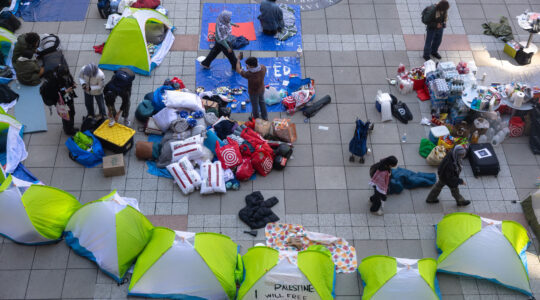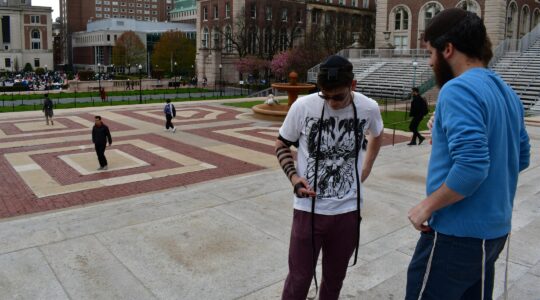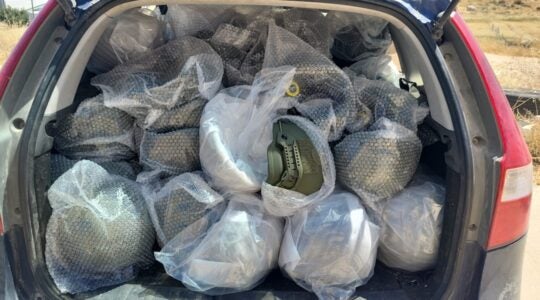CAJE organizers ruffled a few feathers when they announced that their annual conference would start on Tisha B’Av, the day of infamy on which both Holy Temples in Jerusalem were destroyed, the Jews were expelled from Spain, and the Nazis’ deportation of Jews from the Warsaw ghetto to the Treblinka death camp began.
It is a day, traditionally, that is for fasting and mourning, not for conferences.
But CAJE officials told the Fundermentalist last month that the conference’s first day would be heavy with Tisha B’Av-related programming.
They enlisted Storahtelling, the progressive theatrical troupe started by Amichai Lau Lavie that gives modern interpretations of biblical themes, to produce that programming.
Toward dusk, just before the end of the fast – which was optional for CAJE participants – Storahtelling divided the 1,500 participants into seven groups. Each group was given one discussion scenario based on a personal tale from one of seven calamities that happened on Tisha B’Av, from the time of the Jews’ wandering in the desert until, most recently, the 1994 bombing of the AMIA Jewish community center in Buenos Aires, Argentina.
I sat in with the group led by Lau Lavie.
He told the story of Max, an older Jewish man from Poland that Lau Lavie says he actually met. Max told him that he had given up his Judaism several years before the war started. He was tired of the religion and angry at it and felt that he was more likely to become a victim if he was a Jew.
But in 1942, on Tisha B’Av, he was walking near a shul in Warsaw. He heard a song being sung at the synagogue that he remembered from his youth. He stopped outside the shul and debated whether he should enter or keep his distance from his Jewish heritage.
What would you tell Max to do and why, Lau Lavie asked.
I’ll tell you what Max actually did later. But what would you suggest?





